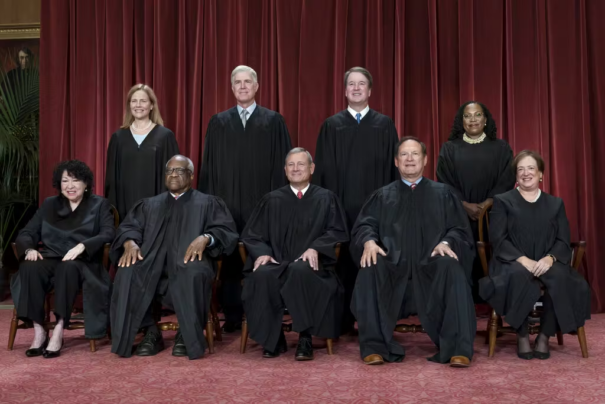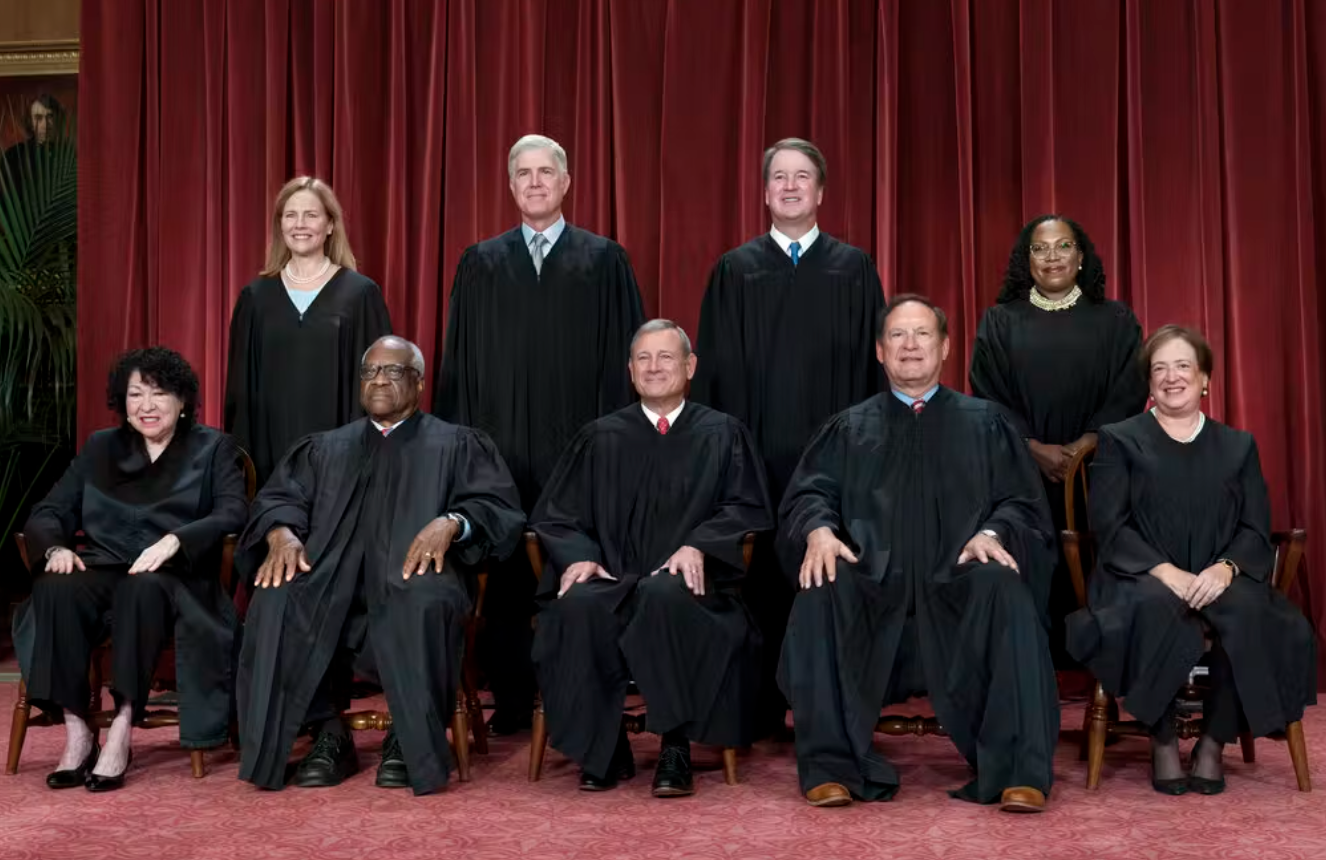
AP/J. Scott Applewhite
The Supreme Court ended its term with decisions that challenged precedent and rolled back rights for the environment, Black and Latino college applicants, same-sex couples, and student loan borrowers. With a 6-3 conservative majority, the Court is making its highest rate of conservative decisions since 1931.Two of its Justices have violated ethics protocol and its approval rating is at a record low of 40%. Legislation cycling through Congress could fix this.
In May, Democrats reintroduced a bill to expand the Supreme Court. The Judiciary Act of 2023 would add four seats to the Supreme Court, creating a 13-Justice bench. Senators Edward Markey (D-Mass.), Tina Smith (D-Minn.), and Elizabeth Warren (D-Mass.) are leading the legislation in the Senate, joined by Representatives Jerrold Nadler (NY-12), Hank Johnson (GA-04), Cori Bush (MO-01), and Adam Schiff (CA-30) in the House.
The Judiciary Act was first introduced in 2021 but, if passed, it would be the seventh time Congress changed the composition of the Court. The Court initially had six Justices, which grew to nine as the country expanded West. In 1863, Abraham Lincoln added a tenth Justice to secure an anti-slavery majority. After his assassination, Congress cut the number of Justices to seven to prevent Lincoldn’s successor, Andrew Johnson, from making nominations. Once Johnson left office in 1869, Congress reinstated a nine-Justice Court.
An unbalanced Court
“We are not packing the Supreme Court, we are unpacking it,” Representative Nadler explained when he introduced the Judiciary Act. Senator Warren said this legislation will rebalance the Court and punish bad actors who manipulated the nomination process.
After Justice Antonin Scalia died in 2016, President Barack Obama nominated Merrick Garland to fill the vacant seat. Senate Republicans refused to vote on the nomination, arguing that the seat should remain empty until the country elected a new president. They blocked the confirmation for an unprecedented 294 days.
In 2020, Republicans did the opposite. After Justice Ruth Bader Ginsburg died, President Donald Trump nominated Amy Coney Barrett to the Supreme Court. Senate Republicans confirmed the nomination eight days before the presidential election.
On June 30, Democrats in the House reintroduced the Supreme Court Term Limits and Regular Appointments Act. This bill would set an 18-year term limit, allow the President to nominate a new Justice in the first and third years of their term, and require the Senate to vote on a nominee within 120 days of their nomination.
An unethical Court
Concerns about ethics and tipped scales have fueled Democrats’ push for more Justices.
Justice Clarence Thomas has taken undisclosed gifts and trips for which a major Republican donor paid hundreds of thousands of dollars. Justice Samuel Alito took an undisclosed vacation with a Republican billionaire who has had cases before the Court. Altio did not recuse himself from these cases.
Justices’ ethics violations go beyond financial incentives. In 1991, Anita Hill testified that Supreme Court nominee Clarence Thomas sexually harassed her. The Senate confirmed Thomas in a 52-48 vote. In 2018, Christine Blasey Ford testified that Supreme Court nominee Brett Kavanaugh sexually assaulted her when they were in high school. He was sworn in two weeks later.
An unjust Court
In a 5-4 decision last summer, the Supreme Court overturned Roe v. Wade and its 50-year precedent. The ruling rolled back the right to abortion, denying women bodily autonomy and creating a framework for the Court to overturn precedent on contraception access, same-sex marriage, and other major rulings.
This year, the Court finished their term with three major decisions split 6-3 along partisan lines. The conservative majority rejected affirmative action, weighed free speech above LGBTQ rights, and struck down Biden’s student debt forgiveness plan. These decisions leaned into political preferences and reversed decades of anti-discrimination precedent.
Supreme Court Justices must uphold democracy, not upend it. The Feminist Majority believes that the country needs judicial reform. We need a Court that defends bodily autonomy and recognizes systemic inequities. We need Justices whose jurisprudence is independent of partisanship and undisclosed gifts. We need Justices who deliver justice.

